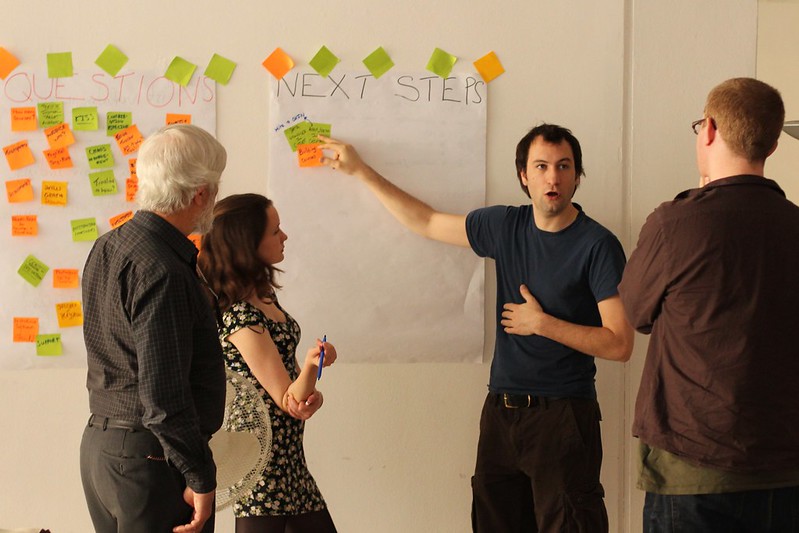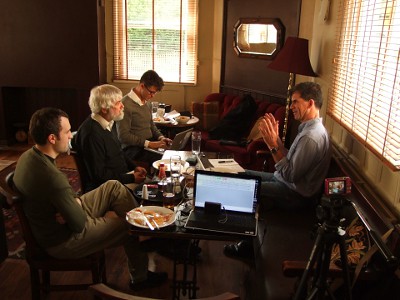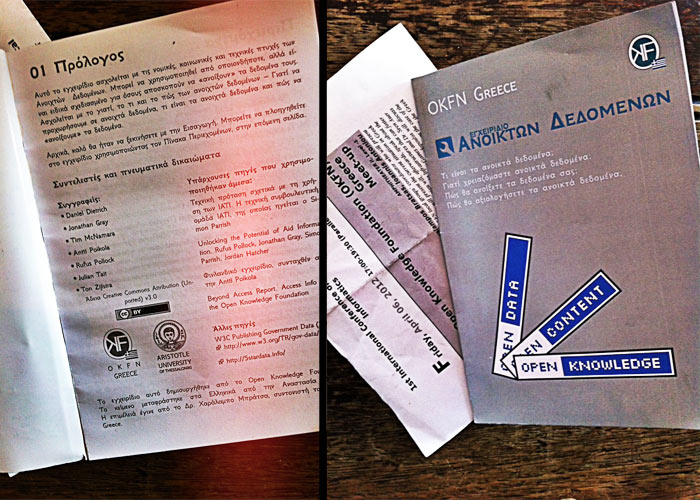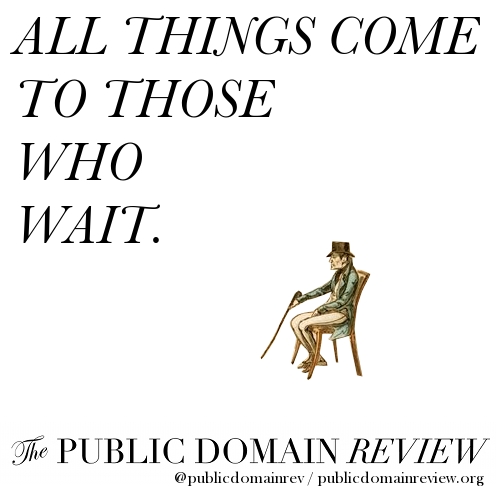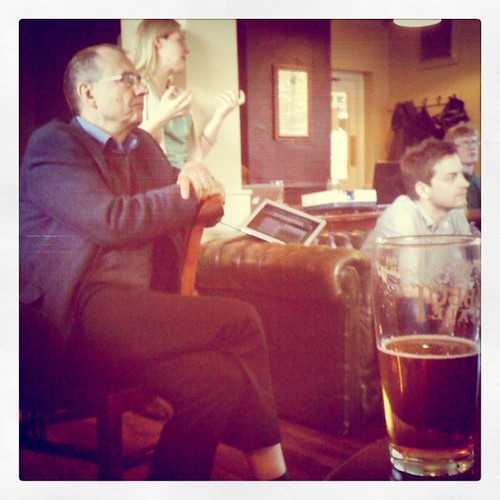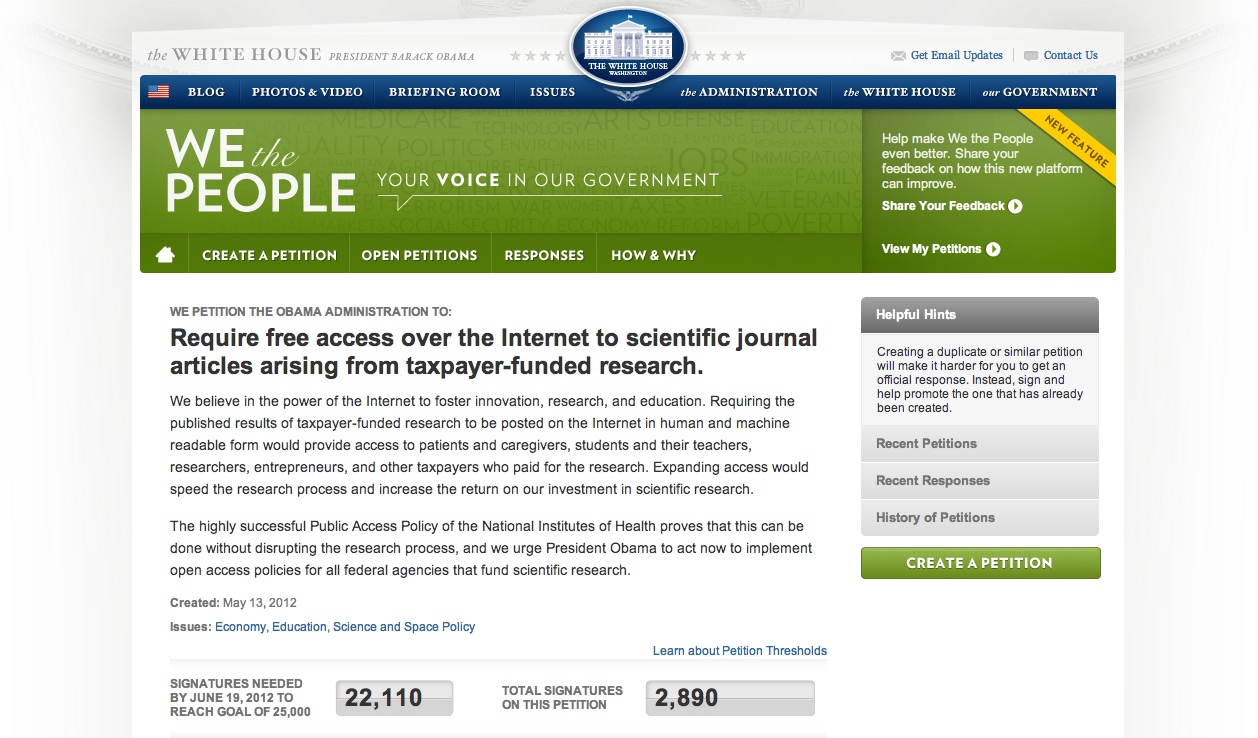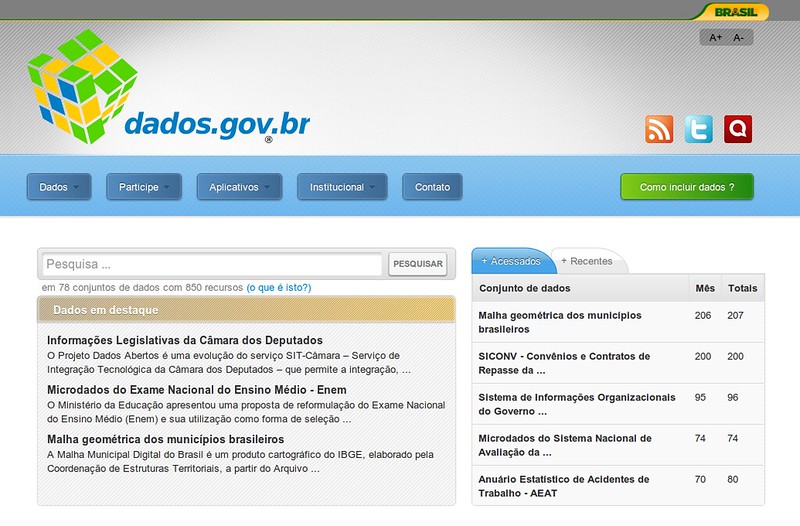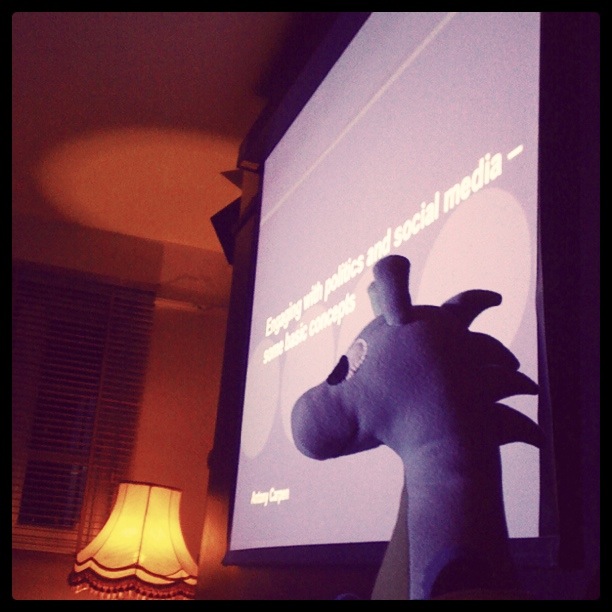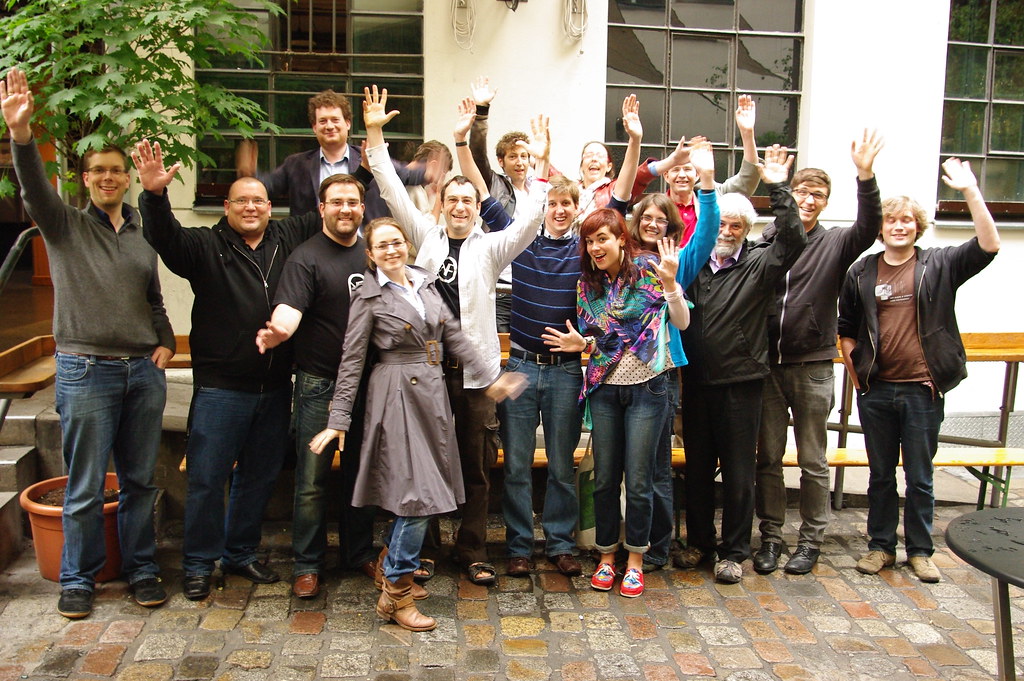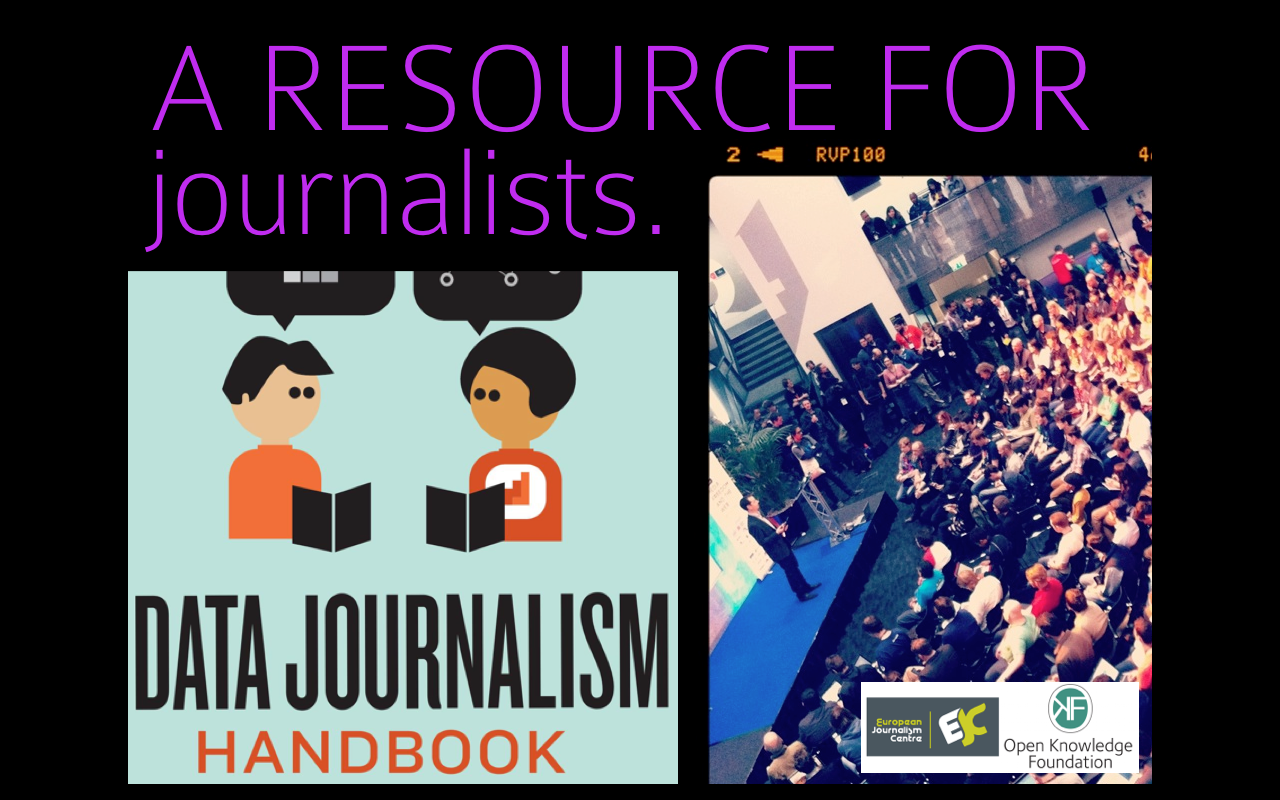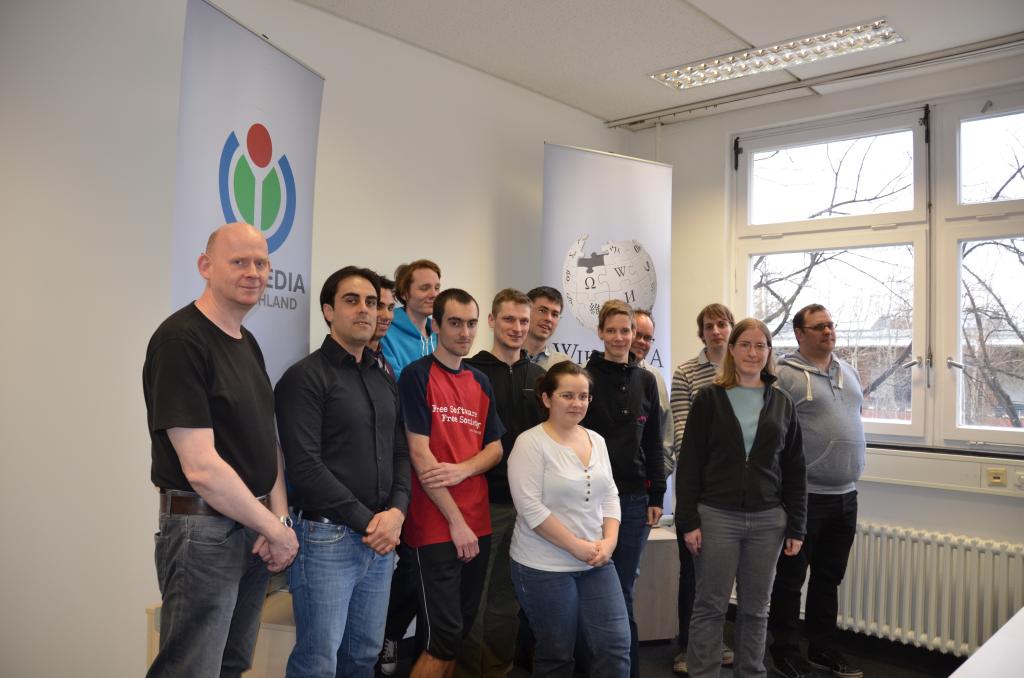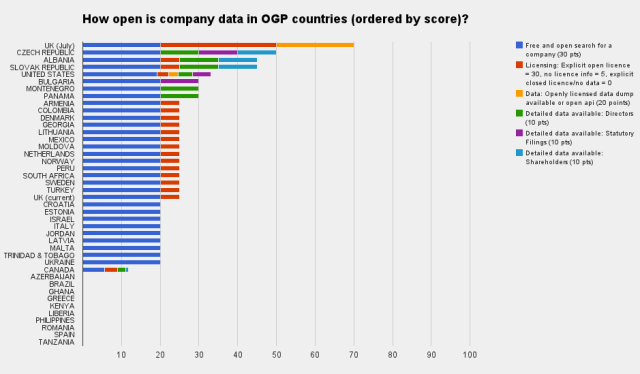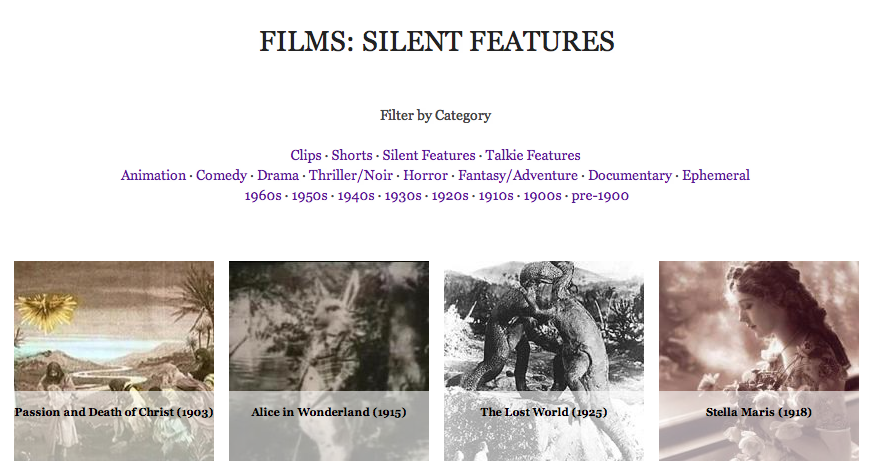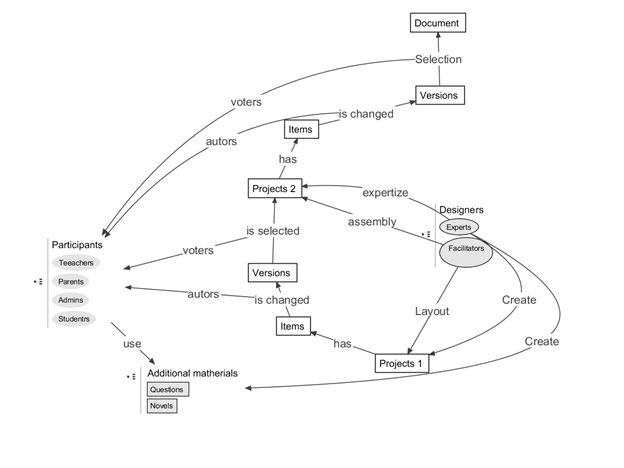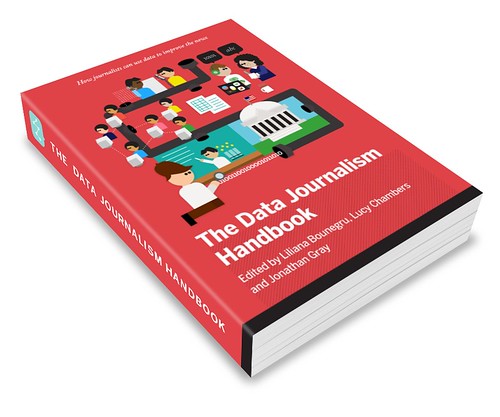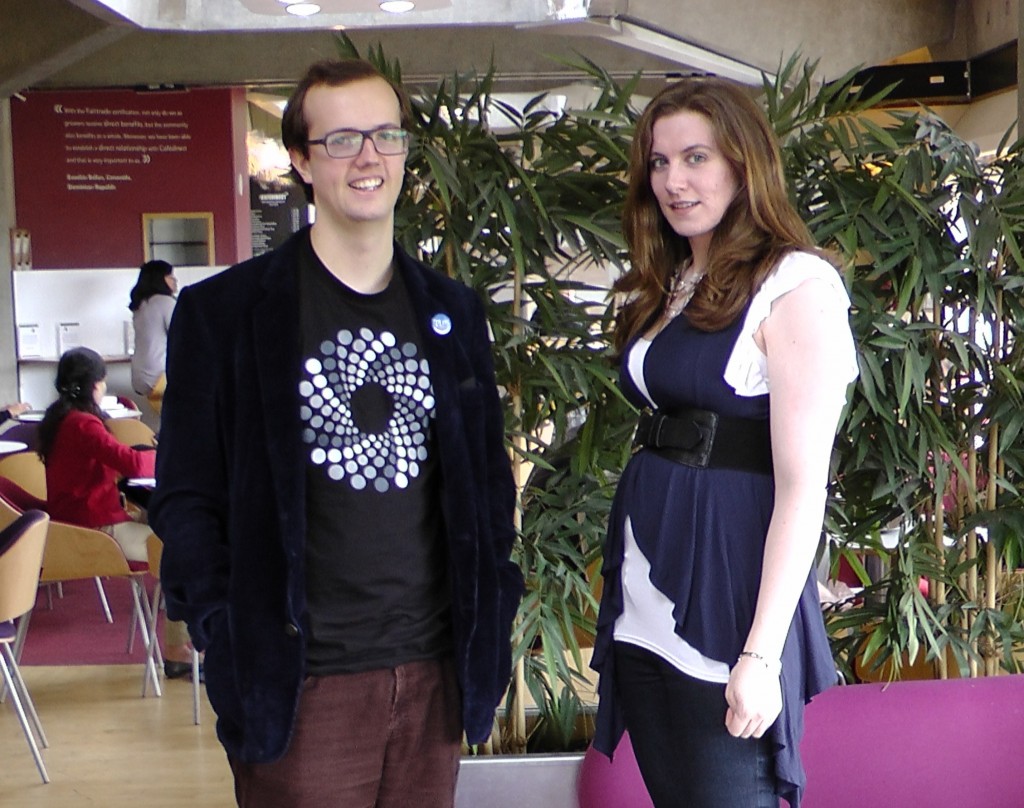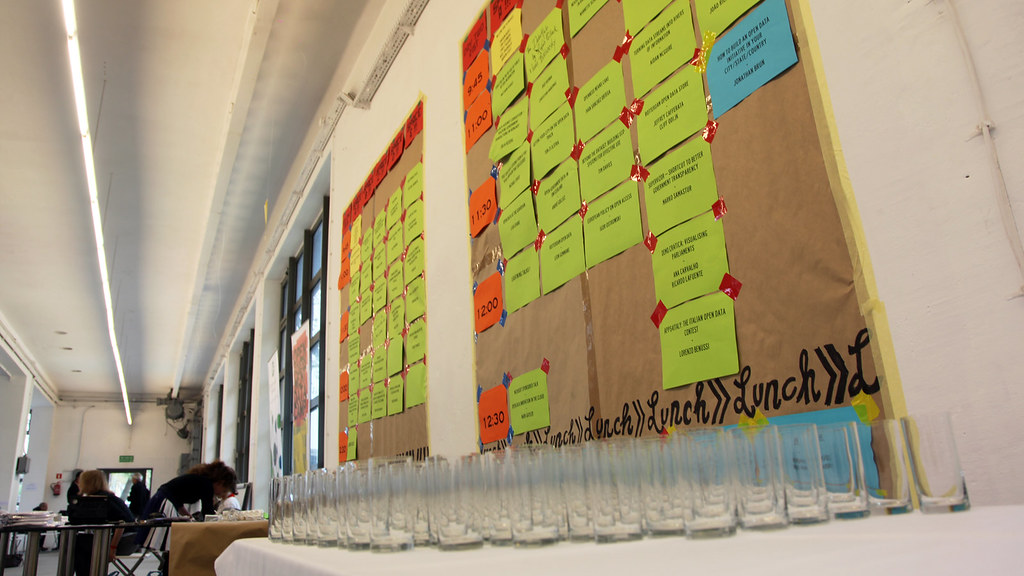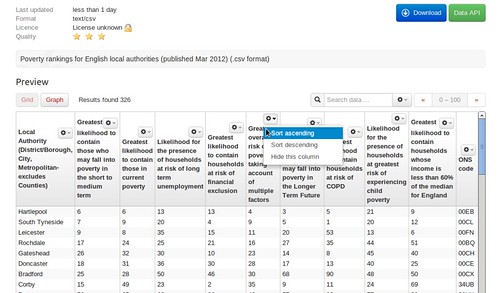Don't miss a thing! Stay on top of what's happening in the #OpenMovement around the world.
Opening up scientific data with CKAN and the DataHub
The argument for open-access science has been won. The old model of scientific publishing was laid down when the costs of publishing were so great that charging for access was the sensible way to meet them. As scientists’ work moves online, it is the old model we can no longer afford: the costs to humanity […]
Read moreOpen Science Hackday, 7th July, in London and Online!
The next OKFN Open Science hackday will be taking place in a few weeks on Saturday 7th July. It would be great to see plenty of open-science folk either in London or online, wherever you are in the world! When: Saturday 7 July 2012, 1000-1700 UTC+1 Where: Centre for Creative Collaboration, London OR OKFN IRC […]
Read moreLaying Foundations for the School of Data
Recently, a small team gathered in Berlin for the School of Data kick-off sprint. After three days fueled by coffee, felt-tip pens and a multi-coloured array of post-it-notes, the sprint left us with a true appreciation of the amazing community we are working with, and an exciting new structure to underpin the School of Data. […]
Read moreData Catalog Schema and Protocol – Draft Specification
Open Data is an idea that continues to gain momentum, and one of the signs of this is that the world has more and more data catalogs. This is great for many reasons but it also brings its own problem especially around interoperability and standardization — the lack of standard schema and interfaces is something […]
Read moreTalk at European Data Forum: Open Data, Where We’ve Come From, Where We’re Going
Last week I was at the European Data Forum and gave a Keynote entitled Open Data, Where We’ve Come From, Where We’re Going. Here are the slides.
Read moreIntroducing PyBossa – the open-source micro-tasking platform
For a while now our network has been working on applications, tools and platforms for crowd-sourcing and micro-tasking. At the end of last year, we posted about a cute little app developed at a hackday called the Data Digitizer that was being used to transcribe Brazillian budgetary data. In recent months we’ve been working closely […]
Read moreAid Data: From XML to Visualisations – IATI data in OpenSpending
Are the World Bank and Department for International Development (DfID) spending money on projects in similar sectors and countries? Does all aid to Kenya go the North-East? How much aid in total did India receive last year? Until recently, it was impossible to know. But now, thanks to the International Aid Transparency Initiative (IATI), we’ve […]
Read moreWhat data can and cannot do
Mining for Information by JD Hancock on Flickr (CC BY) In the early days of photography there was a great deal of optimism around its potential to present the public with an accurate, objective picture of the world. In the 19th century pioneering photographers (later to be called photojournalists) were heralded for their unprecedented documentary […]
Read moreThe Right to Read Is the Right to Mine
The following is a draft content mining declaration developed by the Open Knowledge Foundation’s Working Group on Open Access In brief: The Right to Read Is the Right to Mine ##Introduction Researchers can find and read papers online, rather than having to manually track down print copies. Machines (computers) can index the papers and extract […]
Read moreAnnouncing the Open Science Podcasts
Since the start of the Panton Principles, we have had several different Panton Discussions with different people talking about Open Data in Science. A couple of them have been recorded on video. These recordings have now also been made available as podcasts which allow you to listen to them while travelling, working or just relaxing. […]
Read moreTechnology for Transparent and Accountable Public Finance: Report Published
In early March, we embarked on a project to map out projects which use technology to further the aims of fiscal transparency, accountability and participation. Today, we are happy to announce the official release of the resulting report, Technology for Transparent and Accountable Public Finance. Preliminary findings were presented at last month’s GIFT meeting in […]
Read moreThessaloniki’s Open Knowledge Networks Build Community the Greek Way
Thessaloniki is a vibrant, sun-drenched beachfront city in Northern Greece. It is famous for its impressive historical lineage, its frappé coffee culture and its diverse population augmented by academics and students from the largest university in the Balkans. A few weeks ago, I learned something else unexpected: the city is also a veritable mecca for […]
Read moreAll Things Come To Those Who Wait
‘All Things Come To Those Who Wait’ is an older version of the more common proverb ‘Good Things Come To Those Who Wait’. When the poor fellow waiting in the picture above was published, copyright in printed matter in the UK expired at the same time the author did. By 1842 copyright outlived the author […]
Read moreWhy Open Data isn’t enough.
The debate around data in our community has been densely concentrated around the question of openness. That’s not surprising. Words like “free” and “open” have dominated the conversations in the digital commons for most of its existence, mainly because most of the digital commons has been centered on copyrightable works. Software, text, photos, videos, music […]
Read moreMuch to Discuss at #OpenDataCBG
As faces filled the Panton Arms last week, it was great to see a healthy mix of the familiar and the new. The third meet-up in the #OpenDataCBG series proved to be one of the most friendly and interactive yet. The Setting Last Monday was a day of sudden torrential downpours. Perhaps for fear of […]
Read morePetition the White House to Open Up Publicly Funded Research
John Wilbanks, co-author of the Panton Principles and past OKFN Advisory Board Member, just launched a petition to ask the White House to mandate free access to publicly funded research in the US. Here’s what it says: We believe in the power of the Internet to foster innovation, research, and education. Requiring the published results […]
Read moreInfokultura and Apps4Russia
During recent years, the Russian Federation has undertaken a number of developments in its open data legislation strategy. This trend inspired a team of professionals to get together and start a non-profit organization, “INFOKULTURA”. Understanding that data availability is crucial for an information society and the development of an information culture, we emphasise the establishment […]
Read moreKick-starting the School of Data!
Earlier this year, we announced plans to launch the School of Data. Thanks to the generous support of Open Society Foundations and the Shuttleworth Foundation, we’re now ready to go! We’re holding a kick-off sprint next week, and we invite you to get involved. What is the School of Data? The School of Data is […]
Read moreOKFestival Topics of 2012 Announced, 2nd Call for Proposals Published, Experimentation Encouraged!
For those looking for yet another reason to join us for OKFestival in Helsinki this September, the OKFestival Core Organising Team is proud to announce the inspiring public outcomes of our unconventional First Call for Proposals – and to request your participation for our Second Call to share your ideas in Finland. As we’ve noted […]
Read more#OpenDataEDB 2: 16th May
Following the fun we had at March’s Meet-up ‘launch’, we will be having another gathering of people interested in open data next Wednesday 16th May. Hosted by the Wash Bar, Edinburgh, from 19.00, come and join us to discuss ideas, projects and plans in relation to openness. Lightning Talks will include Federico Sangati on crowdsourcing […]
Read moreLaunching YourTopia Italia: Progress in Italy, defined by You
How do we measure social progress? Academics and international institutions have struggled with employing measures of human development which go beyond GDP per capita: education, health the the economy, but then what values do we attach to these? In countries like Italy stark regional differences have dominated over time. Particularly in times of fiscal austerity […]
Read moreBoundless Learning Got Served. What does it all Mean for Open Textbooks?
If you are at all familiar with the open textbook world, you’ve likely heard of the startup called Boundless Learning. Leveraging information in the public domain, as well as dipping into the enormous stockpile of learning that is Open Education Resources, Boundless Learning has a created a tool that hopes to eventually replace the traditional […]
Read moreNew Brazilian Data Portal dados.gov.br – powered by CKAN
Last Friday (May 4), the Ministry of Planning in Brazil launched the final version of the Brazilian Open Data Portal. In line with the federal government policy to promote the use of free software in public administration, the portal was made using only free and open source tools. Among them is the Open Knowledge Foundation’s […]
Read moreHackathon alert: BiblioHack!
The Open Knowledge Foundation’s Open Biblio group, and Working Group on Open Data in Cultural Heritage, along with DevCSI, present BiblioHack: an open Hackathon to kick-start the summer months. From Wednesday 13th – Thursday 14th June, we’ll be meeting at Queen Mary, University of London, East London, and any budding hackers are welcome, along with […]
Read moreCambridge Open Data Meet-Up!
The next #OpenDataCBG meet-up will take place this Monday 14th May, at 7pm in the Panton Arms. Sign up now! OpenDataCBG is back for its third bi-monthly meet-up! The previous two meet-ups have been a huge success, with almost thirty people squeezing into the function room of the Panton Arms for an evening of talks, […]
Read moreWe’re recruiting!
The Open Knowledge Foundation are currently recruiting for a Data Wrangler and a Data Visualisation Developer. If you’d like join our team, please visit our jobs page. At the Open Knowledge Foundation, we build tools and communities to create, use and share open knowledge – and to help others to do the same. In recent […]
Read moreThe Data Journalism Handbook is Go!
On Saturday 29th April, at the International Journalism Festival in Perugia – 6 months of work on the Data Journalism Handbook was unveiled: the Data Journalism Handbook was launched. The Handbook contains contributions from over 70 of the world’s leading data journalists. The book’s contributors are a “who’s who of data journalism”, says Simon Rogers […]
Read moreMeet the Open Knowledge Foundation in Berlin
We are excited to announce a number of events in Berlin in the next two weeks! Bundesarchiv, Bild 183-S0627-0300 / CC-BY-SA During the re:publica (Germanys biggest Internet-related conference, which is increasingly international) we will host three little Meetups. From May 2nd to 4th we will be waiting for you at the Wikimedia Tent at 6:15 […]
Read moreOpenSpending and CityData Project Films: Introducing Our Nominated Projects at the Rio Cities Summit
Next week Rio de Janeiro will invite local governments, companies and experts, to a global summit in service innovation for cities. The event will focus on green and clean development, urban systems and services, tourism and mobility, health and well-being as well as open government and accessibility. The Living Labs Global Award has nominated two […]
Read moreData Journalism Handbook: Why is data journalism important?
The Data Journalism Handbook is a free, open source reference book for anyone interested in the emerging field of data journalism. It is the result of an international, collaborative effort involving dozens of data journalism's leading advocates and best practitioners – including from the BBC, the Chicago Tribune, the Guardian, the Financial Times, the New York Times, […]
Read moreThe Open Data Cities Conference
Brighton was buzzing with wise, whacky and innovative ideas for Open Data on Friday – even more than usual – as about 150 people converged on the city for the first Open Data Cities Conference. So passionate was the organiser, Greg Hadfield, about the potential of Open Data in cities that he gave up his […]
Read moreOpen Book Publishers releases “The Digital Public Domain”
Open Book Publishers is the first UK academic publisher to have made all its books freely available online, publishing peer-reviewed research in subjects across the Humanities and Social Sciences. They are “committed to the idea that high quality scholarship should be available to readers everywhere regardless of their income or access to university libraries”. This […]
Read moreOpen Cultuur Data: Opening up Cultural data in the Netherlands
Last week, the third and last blog post by the Dutch initiative ‘Open Cultuur Data’ has been published on the openGLAM blog. Open Cultuur Data (Open Cultural Data) is a network of cultural professionals, developers, designers, copyright specialists and open data experts, that opens cultural data and encourages the development of valuable cultural applications. This […]
Read moreSneak Peek Inside the Data Journalism Handbook
After several months of hard work, the Data Journalism Handbook is almost ready to be released. The handbook will be launched during the School of Data Journalism at the International Journalism Festival in Perugia, Italy, next week. The handbook is a free, open source reference book for anyone interested in the emerging field of data […]
Read moreWikidata: a new open data repository for the world
This month Wikidata, a new project of Wikimedia Germany, finally started. The ambitious goal of the project is to create an open data repository for the world’s knowledge that can be accessed and edited by everyone, humans and machines alike. Wikidata will be a place where Wikipedia’s editors and others will be able to collect […]
Read moreUK Open Standards Consultation
The following post is cross-posted from Jeni’s blog – http://www.jenitennison.com/blog/ Over the last few months, the UK Government has been running a consultation on its Open Standards policy. The outcome of this consultation is incredibly important not only for organisations and individuals who want to work with government but also because of its potential knock-on […]
Read moreLaunching the Open Data Census 2012!
To take part in the Open Data Census 2012, please visit: http://opengovernmentdata.org/census/submit/. As government officials, civil society leaders and open data experts gather in Brazil this week for the Open Government Partnership, it is clear that Open Government Data has become a major topic on a global scale. In September last year, 8 governments founded […]
Read moreHow open is corporate data in Open Government Partnership countries?
Today, the day before the Open Government Partnership meeting starts in Brasilia, OpenCorporates is publishing a major new report into access to company data in OGP countries, and the picture is not good. Out of a total of a possible 100 points, the average score was just 21, with several major countries (including Spain, Greece […]
Read moreCan Open Data help conflict prevention?
We’re in the planning stages of a conflict prevention project called PAX and open data perspectives have fed into our thinking in its processes and structures. PAX aims to provide early warnings of emerging violent conflict, through an online collaborative system of data sharing and analysis. We’re still in the early stages of exploration and […]
Read moreNew “Filter by Category” option for The Public Domain Review’s Collections
The Public Domain Review is very excited to reveal the brand new “Filter by Category” option for the Collections section of the website. Previously everything was simply piled into either the Films, Images, Texts or Audio section with no further options for sorting. No longer. Now users can filter within each section by category of […]
Read moreThe public examination of draft laws: Lawmaking 2.0 for Russia
Although “democracy” means “rule by the people”, history has known few cases of such a form of government. In the vast majority of cases “democracy” is used to refer to a representative form of a government, in which citizens delegate their political rights to elected officials. As a result, representative democracy leads to bureaucratic establishment. […]
Read moreBeing Open About Data
A more detailed version of this post can be found on the Finnish Institute blog. The Finnish Institute in London has recently completed a five-month research project on the British open data policies. The report looks at how the open data ecosystem has emerged in the UK and what lessons can be drawn from the […]
Read morePoster about the Data Journalism Handbook for the Information Design Conference 2012
Freelance infographic designer Lulu Pinney has kindly designed a wonderful poster which illustrates some of the topics covered in the Data Journalism Handbook, a free, open source reference book which shows how journalists can use data to improve the news. She uses a process diagram to represent different aspects of the data journalist’s workflow – […]
Read moreAnnotateIt and Annotator: a new mode of communication on the web
For some time, we at the Open Knowledge Foundation have been working on a project to allow you to annotate the web. All of it. We’re now happy to announce two major releases: of Annotator, the code that makes web annotation possible, and AnnotateIt, a web service providing storage for your annotations. What are you […]
Read moreIllustrations for the Data Journalism Handbook
Here is a preview of some illustrations for the Data Journalism Handbook, a free, open source reference book which shows how journalists can use data to improve the news. They were created by the talented Kate Hudson, based on the original designs she did for the book at MozFest 2011. If you want to be […]
Read moreOpen GLAM Workshop in Berlin – Register now!
Following on from our Open GLAM workshop in London, in a few weeks we’re hosting a half day workshop in Berlin looking at how to overcome barriers to opening up data in the cultural heritage sector entitled Rechtliche Fragen beim Öffnen von (Meta-) Daten Gedächtnisinstitutionen (Legal Questions Regarding (Meta)data in Cultural Heritage Institutions). We […]
Read moreTalk at LIFT 2012: Open Data – How We Got Here, and Where We’re Going
I’m pleased to announce that the video of my talk, Open Data: How We Got Here, and Where We’re Going, that I gave a few weeks ago at the LIFT 2012 conference has now been published: Over the past few years, there has an explosive growth in open data with significant uptake in government, research […]
Read moreIntroducing our Panton Fellows!
The Panton Fellowships are a new initiative to support scientists who promote open access to data. Funded by Open Society Foundations, the Open Knowledge Foundation are proud to welcome Ross Mounce and Sophie Kershaw as the first ever Panton Fellows. ##What are the Panton Fellowships? Many scientists believe in the benefits of open data. […]
Read moreOKFestival Call for Proposals Released With a Twist
For those looking for a reason to come to Helsinki with us this fall, the OKFestival Call for Proposals is released today – and it has an experimental, innovative focus. The spin? For this year’s OKFestival (the first event of its kind, organised almost entirely through virtual conference calls, IRC chats and co-written documents by […]
Read moreIntroducing the DataStore
A major new feature in the DataHub is good news for data wranglers. The DataStore allows users to store and load structured data into a database, where it can be queried, filtered, or accessed from other programs via a rich data API. The API is also used by CKAN’s inbuilt Recline Data Explorer, giving in-page […]
Read more
